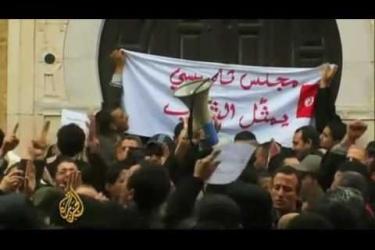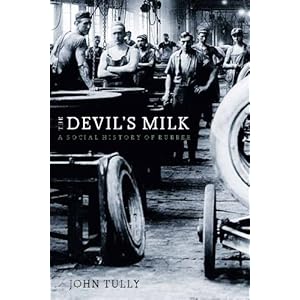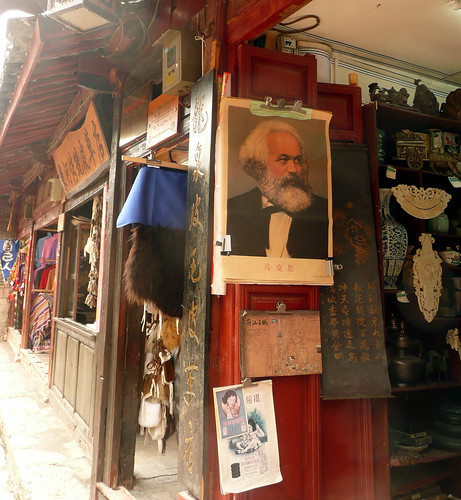China
By Norm Dixon
Philippines socialists call for negotiated settlement to Spratly Islands dispute
For more background to the Spratly Islands issue, see "China, Vietnam and the islands dispute: W
Pamphlet: Capitalism and workers’ struggle in China (revised edition)

[For more on China, click HERE.]
By Chris Slee
Preface to the revised edition (2011)
June 6, 2011 – Links International Journal of Socialist Renewal -- There are a number of changes in this edition compared to the first edition (Resistance Books 2010). Most of these changes merely expand on points made in the original, supplying more detail in the text and/or the footnotes. Others take account of new developments in the year since the first edition was published.
The biggest change is in the discussion of the Great Leap Forward, which has been significantly expanded and rewritten. I felt this was necessary for two reasons. First, I wanted to acknowledge that natural disasters as well as mistaken policies played a role in the reappearance of famine in 1959-61. Second, I wanted to explain in more detail what the policy errors were, and why I consider that Mao was largely responsible for them.
* * *

Introduction by Mike Treen
May 2, 2011 -- Links International Journal of Socialist Renewal -- Below is the latest entry from the Critique of Crisis Theory blog by Sam Williams [posted here with Williams' permission]. In it he analyses the current stage of the industrial cycle and asks, “Is the economic crisis over?”.I hope that reading this post will encourage people to look more closely at the entire series on Critique of Crisis Theory, which has taken the form of a developing book on crisis theory.
The first chapter explains the biggest challenge the author faced — the fact that Marx did not leave a completed crisis theory. It was certainly the plan when Marx began Capital, but in the end only one volume was completed before his death and volumes two and three only took partial steps to a completed theory.
Tariq Ali's 2011 Robb Lectures: Empire and its futures -- Islam, US hegemony and China
Lecture 1: Islam and its discontents, March 17, 2011. Lectures 2 & 3, below.
A series of three lectures by Tariq Ali.
Renowned Marxist and anti-war campaigner Tariq Ali presented these three lectures as part of the University of Auckland's annual Sir Douglas Robb Lectures, delivered March 17-23, 2011. The videos have been made available to Links International Journal of Socialist Renewal courtesy of the University of Auckland library.
* * *

Soundtrack to a revolution: interview with Asian Dub Foundation's Chandrasonic
February 23, 2011 -- British-born South Asian punk-dance band Asian Dub Foundation (ADF) released their latest album A History of Now just as the revolution in Egypt was starting to build. Someone unknown to the band edited news footage of the revolt to the album’s title track and stuck it on YouTube (above).
New book reveals the history of rubber: holocausts, environmental destruction and class struggle

The Devil’s Milk: A social history of rubber
By John Tully
Monthly Review Press, 2011
[Order the The Devil’s Milk from Monthly Review Press HERE. John Tully launched the book in Melbourne on February 17, at Readings Books, Carlton (309 Lygon St). He will also launch it in New York City on February 22, 7.30pm, at The Brecht Forum, 451 West Street.]
February 18, 2011 – Links International Journal of Socialist Renewal -- This new book from Monthly Review Press – by Australian socialist John Tully -- documents the history of rubber and the role it has played in the development of capitalism.
Rubber is an essential industrial material, although underappreciated by most of us, even though we are surrounded by it. Since its industrial uses began to be fully appreciated in the 1800s, the quest for rubber has been, in Tully’s words, “a paradigm of imperialism”.
Martin Hart-Landsberg: China and the jobs issue

"Approximately 90 per cent of China’s high technology exports to the US are produced by multinational corporations and many of them are being bought an
US imperialist aggression in the early 21st century
Washington has reactivated the US Navy’s 4th Fleet to ensure US power projection over the Caribbean, Central and South America.
[This talk was presented at the regional “socialism conference” was held in Manila from November 27 to 28, 2010. The conference was organised by the socialist Partido Lakas ng Masa (Party of the Labouring Masses) and the socialist-feminist regional network Transform Asia.]
By Rasti Delizo
How the Communist Party of Australia exposes the Democratic Socialist Party's 'Trotskyism'
By Doug Lorimer
[This article first appeared in the Democratic Socialist Party's internal discussion bulletin, The Activist, volume 10, number 7, August 2000.]
The Communist Party of Australia has recently published a pamphlet by David Matters entitled Putting Lenin's Clothes on Trotskyism which claims that the DSP's rejection of Trotsky's theory of permanent revolution is really a cover for its support for Trotskyism. However, the real purpose of the pamphlet is to criticise the DSP's position on the 1998 waterfront dispute.
This is made clear in the introduction to Matters' pamphlet by CPA general secretary Peter Symon:
In writing Putting Lenin's clothes on Trotskyism, David Matters has contributed to the task of clarifying ideas and maintaining the validity and truth of Marxism...
The attack on Marxism in the name of Marx, or on Lenin in the name of Lenin, is a particularly pernicious form which can easily mislead those who are not familiar with what Marx, Engels and Lenin actually said and wrote.
The pretension that Trotsky was a great Leninist is one of these misrepresentations and was refuted time and again by Lenin.
China: An international dialogue on Marx

A trader in Lijang, China, selling images of Karl Marx. Photo by Malias.
By Norman Levine
January 4, 2010 -- Links International Journal of Socialist Renewal -- Organised by Marcello Musto of York University (Toronto, Canada), an international delegation of scholars from Canada (Marcello Musto and George Comninel), USA (Norman Levine), England (Terrell Carver), Japan (Hiroshi Uchida and Kenji Mori) and South Korea (Seongjin Jeong) participated in a two-week series of colloquiums and lectures in China. This delegation was invited and graciously hosted by Fudan University of Shanghai and Nanjing University (two of the top five universities in China), and by the Chinese Academy of Social Sciences (CASS) and the Chinese Central Compilation and Translation Bureau (CCTB) of Beijing. The faculties and administration of each of these institutions partnered in these colloquiums, which also saw the participation of Chinese academics from 23 different universities (and, among them, of many deans and chairs of departments).